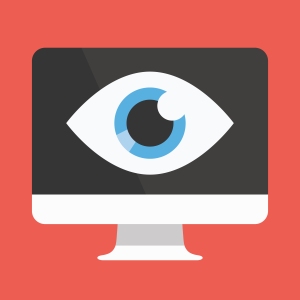Recently, Natalie Carlton, chair of AATA’s Technology Committee, sent me a link to Open Informant an art project that “attempts to confront the unsettling realities of surveillance in a networked age”. The art project involves using an app and e-ink badge to publicly display the NSA trigger words for surveillance in one’s own e-communication. By wearing the badge out in the public, one’s body becomes an integral part of challenging and exploring the narrative told about surveillance in our society. The simplistic explanation of “for our safety and security” is immediately confronted and thrown into our psychological, physical, and emotional space to produce issues layered with complexity as we encounter or wear this badge.
On the other side, we have artists who use surveillance themselves as an art form. Surveillance Art takes advantage of the technological advance of a camera that can zoom, fly, and be hidden practically anywhere. Art News has a great article on exploring the meaning of invading other’s privacy in the name of art and you would be surprised at how this provokes your own personal feelings about surveillance, art, and privacy. With greater access to advanced technological devices and online information, the line between transparency and privacy is very blurry. Privacy laws and social ethics have still not caught up with the wave of technological change in our culture. Whether surveillance is being conducted in the name of art, safety, security, convenience, or simple voyeurism, we need to acknowledge that boundaries are being crossed and control is being created.
As an art therapist, we have to be mindful of the potential fragility and power digital information and visuals hold. What does it mean to store a client’s digital artwork in digital space? And how does the client feel about this? What if the client wants to post his or her artwork on social media? These are conversations we need to have before we engage in digital media with our clients through informed consent. This year at AATA’s annual conference in Minneapolis, a panel (“The Ethics of Digital Identity”) will address these distinct ethical problems and issues our digital environments pose and hopefully provide a guideline for art therapists who utilize digital media.

